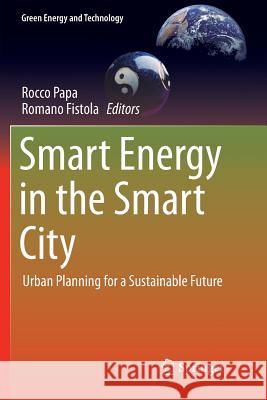Smart Energy in the Smart City: Urban Planning for a Sustainable Future » książka
topmenu
Smart Energy in the Smart City: Urban Planning for a Sustainable Future
ISBN-13: 9783319809779 / Angielski / Miękka / 2018 / 342 str.
Kategorie:
Kategorie BISAC:
Wydawca:
Springer
Seria wydawnicza:
Język:
Angielski
ISBN-13:
9783319809779
Rok wydania:
2018
Wydanie:
Softcover Repri
Ilość stron:
342
Waga:
0.49 kg
Wymiary:
23.39 x 15.6 x 1.88
Oprawa:
Miękka
Wolumenów:
01
Dodatkowe informacje:
Wydanie ilustrowane











